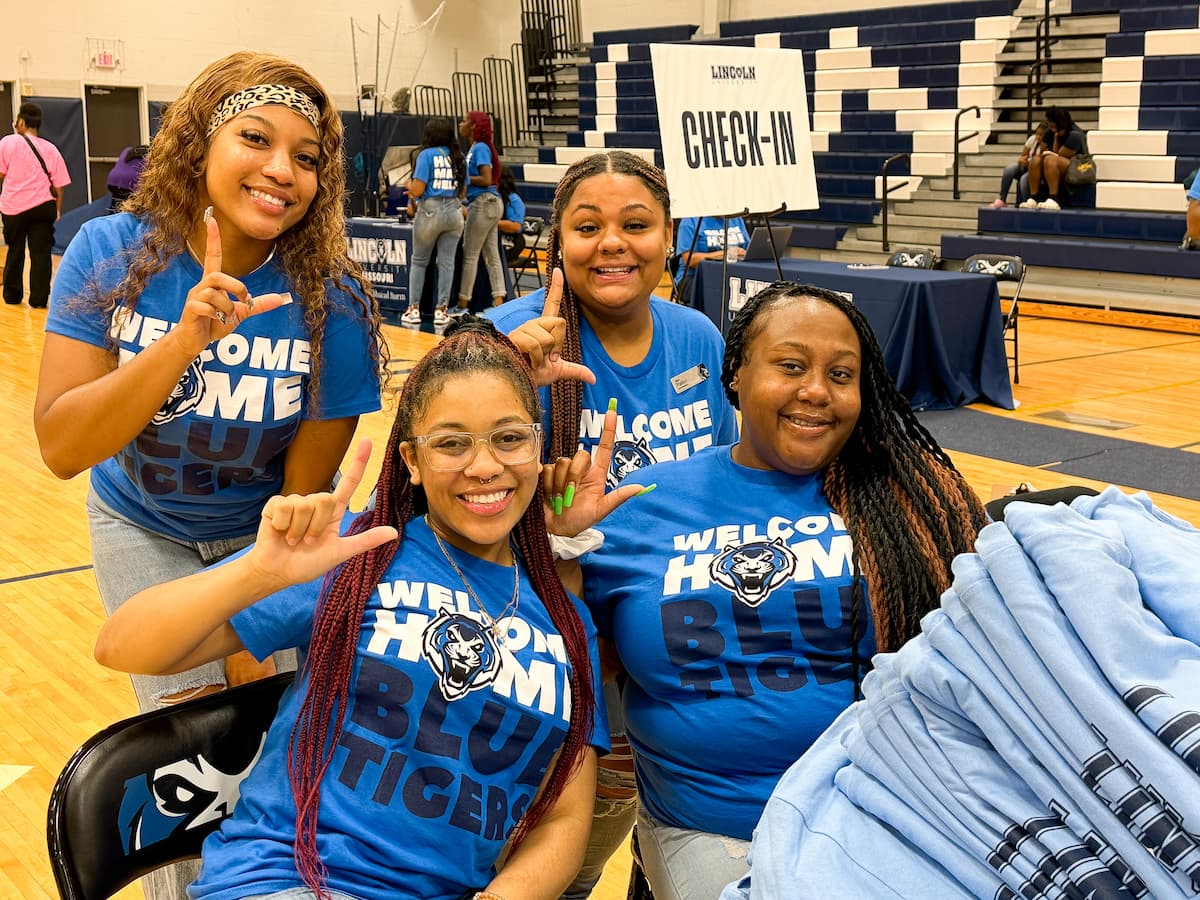Lincoln University of Missouri Reports Significant Increases in Fall Semester Enrollment and Academic Performances, Year Over Year
Office of Communications and Marketing
Young Hall
820 Chestnut Street
Jefferson City, MO 65101
 Lincoln University has achieved the highest enrollment since 2019, with a 14.17% increase in fall 2024 enrollment.
Lincoln University has achieved the highest enrollment since 2019, with a 14.17% increase in fall 2024 enrollment.
More students are in the classrooms – in-person and online – and seeing greater academic achievements at Lincoln University of Missouri, compared to previous years. Recent academic initiatives, such as the newly launched University College and new online programs, plus facility and technology improvements, aim to support the continuation of those trends.
Lincoln University reports a 14.17% increase in overall enrollment compared to fall 2023, with total enrollment for fall 2024 reaching 2,054—the highest since 2019. Full-time student enrollment also saw a notable rise of 15.85%, growing from 1,143 to 1,440.
New student enrollment has surged to 848, marking a 27.33% rise compared to fall 2023. International students now make up 9% of the Lincoln University student body. The university also saw significant growth in full-time graduate student enrollment, reflecting continued interest and success in advanced degree programs.
As retention remains a critical measure of student success, Lincoln University has made substantial gains in this area as well. Retention rates have increased from 49% in 2023 to 59.2% in 2024, the highest retention rate in 27 years. These improvements reflect the university’s focused efforts on student engagement, academic support and overall student experience.
Lincoln University students have seen significant academic gains over the past two years, marked by an 11% increase in Dean’s List achievements and a 14% rise in students in good academic standing from spring 2022 to spring 2024. These improvements are coupled with a 25% decrease in the number of students on probation or suspension.
“Our focus on academic excellence is yielding measurable results,” says Lincoln University President Dr. John B. Moseley. “We are seeing our students thrive academically, and these gains are reflective of the dedication and support our campus community provides.”
Average GPAs have risen across all demographics since 2021, with an 11.98% increase among first-time freshmen. African American students have seen a 7.17% rise in average GPA, while male and female students have experienced increases of 5.43% and 5.14%, respectively.
The university continues to expand its academic offerings with the introduction of 100% online graduate and certificate programs, making education more accessible to a broader audience. Online programs include a Master of Business Administration, a Master of Arts in Higher Education with an HBCU concentration, a Master of Education in School Administration and Supervision for K-12 educators, as well as certificate programs in Cybersecurity, EMT, GIS and Mental Health for First Responders.
“By offering flexible online courses, we are empowering students to pursue advanced degrees and certifications that will enhance their careers and meet the needs of the workforce,” says Dr. Moseley.
This academic year also marks the inaugural year of Lincoln’s University College, an initiative designed to provide a comprehensive and supportive academic environment for all students. University College will focus on enhancing the first-year experience, offering academic advising, tutoring and support services aimed at helping students succeed from day one.
“University College represents our commitment to ensuring that every student who walks through our doors has the resources and support they need to thrive,” Dr. Moseley says. “It’s an exciting new chapter for Lincoln University, and we are eager to see the positive impact it will have on our students.”
In addition to academic achievements, Lincoln University has made significant investments in campus facilities and technology to enhance the student experience. Over the past year, the university received an additional $2.1 million in land grant match appropriations, $100,000 for mental health training and programs, $800,000 from Missouri Governor Mike Parson's allocation for life and safety improvements and $776,580 for energy improvements.
Students on campus are benefitting this fall from upgraded classroom technology in more than 50 classrooms, new servers and Wi-Fi devices, as well as the continued distribution of laptops through the Blue Tiger Connect initiative.
Facility improvements are also underway, including a $23.25 million renovation project at Dawson Hall, which will add 180 rooms with over 300 beds. Future plans include a cafeteria renovation scheduled for summer 2025, remodeling of the Blue Tiger Den in the Student Union Complex and investments in common areas of residential halls.
“We are committed to providing our students with an exceptional education, both in and out of the classroom,” Dr. Moseley says. “The progress we have made is just the beginning, and I am confident that the future holds even greater achievements for our university community.”
